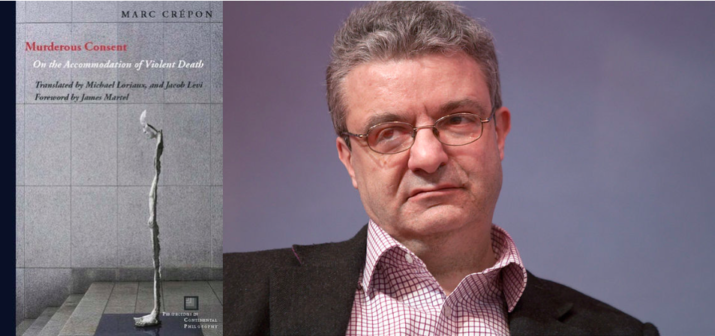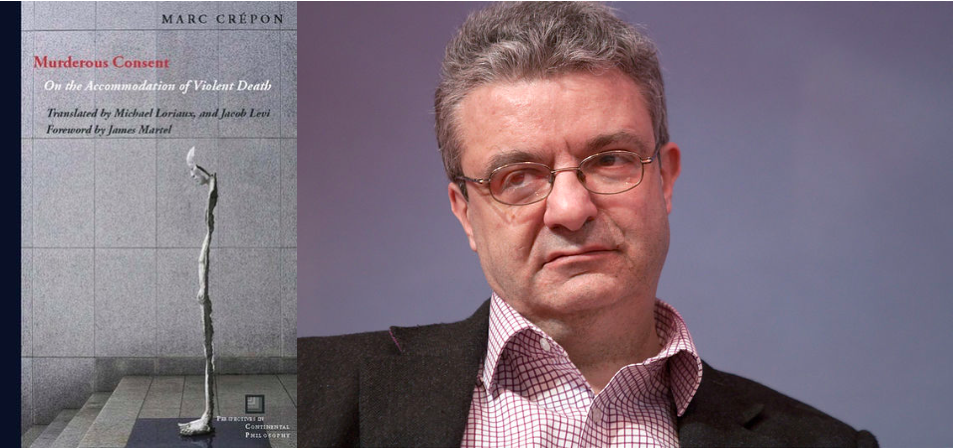

An introduction to a roundtable on Marc Crépon’s Murderous Consent: On the Accommodation of Violent Death
In the past several months, death, murder, and violence have occupied headlines worldwide. These various kinds of distress, which have become so visible, have their roots in preexisting violence and vulnerabilities: The global pandemic has simultaneously exposed and intensified long-standing economic and social inequalities across the world. Ethnic, religious, and racial minorities, people with disabilities, and the poor have been suffering at a much higher mortality rate and a more dreadful death. The murders of George Floyd, Breonna Taylor, and Ahmaud Arbery have once again brought to light the systemic anti-black racism. Israel’s plan of annexation of the occupied territories follows the so-called Israeli-Palestinian peace plan, both of which have only further endangered the longstanding Palestinians’ struggles for their right of political self-determination.
In this atmosphere of interrelated violence and vulnerabilities, this roundtable revolves around Marc Crépon’s Murderous Consent: On the Accommodation of Violent Death, which draws attention to the ways in which we consent to violence, often through our silence and inaction. The slogan “white silence equals violence” in the context of anti-racism protests following the murder of George Floyd is an eloquent rendition of Crépon’s formulation of murderous consent. Murderous consent is defined in the book as any accommodation with violent death, any habituation to murder, “regardless of who the victims are.”[1] With this, Crépon provocatively invites his readers to first acknowledge their implication in violence. “No one in good conscience can consider his or her life, as being-in-the-world, immune from murderous consent,” Crépon writes.[2] Analyzing literary and philosophical texts, the book then proposes a new coordination between ethics and politics that binds us to one another, calling us to heed the other’s cry for attention, care, and help, without any exceptions.
Published in 2012 in France, Murderous Consent was translated into English in 2019 by Jacob Levi and Michael Loriaux.[3] This roundtable brings together three responses to the book by Siraj Ahmed, a Professor of English and Comparative Literature at Lehman College, City University of New York, Jacob Levi, a co-translator of the book and a PhD candidate in the Department of Comparative Thought and Literature at Johns Hopkins University, and Michael Loriaux, a co-translator of the book and a Professor of Political Science at Northwestern University. Ahmed, Levi, and Loriaux have reflected on and challenged some of the important issues that Murderous Consent foregrounds in our current moment.
-
“The Humanitarian Ideology” by Siraj Ahmed
-
“The Autoimmunity of Murderous Consent” by Jacob Levi
-
“Murderous Consent: A Translator’s Note” by Michael Loriaux
Niloofar Sarlati is a postdoctoral fellow in the Department of Comparative Literature at the University of Michigan, Ann Arbor, where she will become assistant professor of Comparative Literature from Fall 2021. Her current book project studies linguistic and economic modernities in Britain and Iran during the long-nineteenth century by engaging multiple forms of literary productions including novels, poems, travelogues, and periodicals.
References:
[1] Marc Crépon, Murderous Consent: On Accommodation of Violent Death (Fordham, 2019), 2.
[2] Crépon, 6, emphasis in original.
[3] Jacob Levi and Michael Loriaux have recently been awarded the 2020 French-American Foundation Translation Prize for their translation of Murderous Consent.
Published on August 4, 2020.




